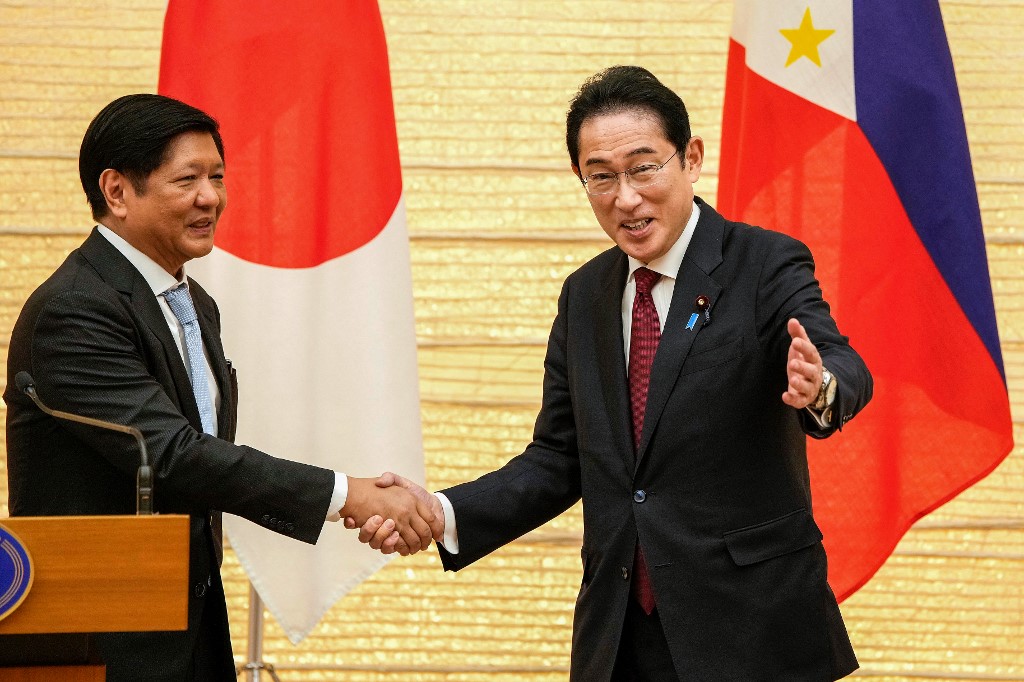
Japanese Prime Minister Fumio Kishida (R) shakes hands with Philippine President Ferdinand Marcos during a press conference at the prime minister’s official residence in Tokyo on February 9, 2023. (Photo by Kimimasa MAYAMA / POOL / AFP)
President Marcos and Japan Prime Minister Fumio Kishida lauded the signing in Tokyo on Thursday evening of the terms of reference on the humanitarian assistance and disaster relief operations of the Japanese military in the Philippines.
According to the Japanese Embassy in Manila, the terms of reference were signed after bilateral talks at the Prime Minister’s official residence in Chiyoda-ku.“In this year of complex international situations, Japan attaches great importance to cooperation with the Philippines,” Kishida said at the start of the summit and working dinner.
“After our meeting, I can confidently say that our strategic partnership is stronger than ever as we navigate together the rough waters buffeting our region,” the President was quoted as saying in the embassy’s communique.
After the summit, Kishida later said they agreed to establish an appropriate framework after consultations of foreign and defense ministers, strategic dialogue by vice ministers and political-military dialogue.
The embassy statement said both leaders shared belief in the fundamental principles of a “free and open Indo-Pacific region” and the involvement of the Association of Southeast Asian Nations.
Expanded security cooperation
Although the agreement was officially concerned with disaster relief cooperation, it is widely seen as a precursor to a pact on expanded security cooperation that has been on the diplomatic back burner for almost three decades.
The possibility of a defense and security treaty with Japan has been discussed since the administration of the late former President Fidel Ramos in the 1990s, but it has not materialized mainly because of Japan’s pacifist constitution.
Kishida explained that Tokyo released last December its “National Security Strategy” and other documents and the President welcomed Japan’s commitment to a free and open rules-based international order.
Japan’s national security strategy affirms the maintenance of an exclusively defense-oriented defense policy that poses no threat to other countries, and observing the Three Non-Nuclear Principles it declared in 1967.
The Three Non-Nuclear Principles forgo possession, production and introduction of nuclear weapons in line with the country’s Peace Constitution.

